
On 17th November 2022, LSE-Fudan Research Centre for Global Public Policy (the Center) and LSE-Fudan Global Public Policy Hub (the Hub) jointly held the first LSE-Fudan Annual Conference “Global Public Policy: Challenges and Prospects”. The conference presented the key achievements of the Center and invited over 20 scholars from Fudan University and LSE to share their academic insights on major global public policy challenges (e.g. global crisis management, international technology competition, new development assistance, and population aging). Over 150 scholars, researchers, and students attended the hybrid conference.
Professor Yijia Jing, Director of the Center and Dean of the Institute for Global Public Policy invited Professor Zhimin Chen, Vice President of Fudan University, and Professor Susana Mourato, Vice President of LSE, to give opening remarks.
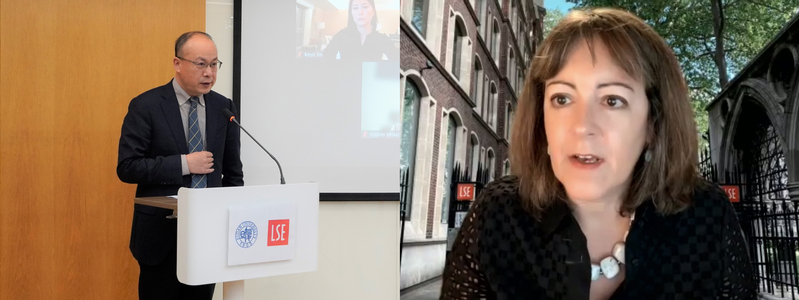
Professor Zhimin Chen pointed out that universities and research institutes around the globe should exchange knowledge and make joint contributions to innovatively solve global challenges. Fudan University has developed global, multi-faceted partnerships with many prestigious universities and LSE is a key partner. The research team of the Centre and the Hub has kept producing high-quality research outputs and providing new knowledge for global governance.
Professor Susana Mourato stated that the LSE 2030 strategy commits to producing outstanding research outputs with global impact and inspiring academic dialogues on key global governance issues. The Centre and the Hub are the key components of the strategy and have revealed academic leadership in the global public policy discipline. This annual conference invited distinguished scholars from both universities to share their expertise on global issues in the post-epidemic era, which provides invaluable guidance for global public policy practice.
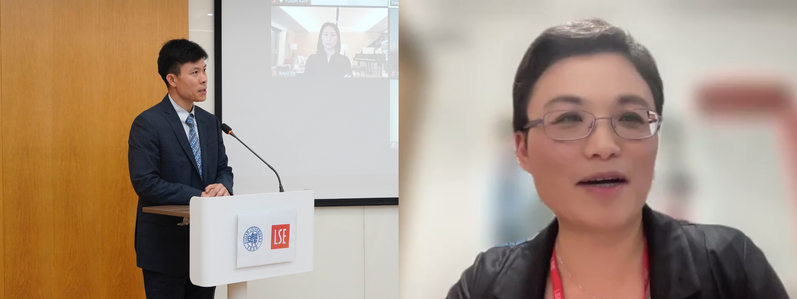
Professor Andrés Velasco, Dean of the School of Public Policy at LSE, then invited Professor Yijia Jing and Professor Bingchun Meng, Co-Directors of the Center and the Hub, to update the development and cooperation between the two universities.
Professor Yijia Jing first introduced the missions and governance structure of the Centre. The Centre has promoted in-depth research and teaching cooperation between the two universities on frontiers in global public policy. Despite the inconvenience caused by the global pandemic, the Centre has organized many high-quality workshops, seminars, and lectures, published systematic research outputs, and established several knowledge-sharing platforms (e.g. academic journals, book series, and online videos). The two universities have deepened their cooperation in education by establishing new double-degree master’s programs, undergraduate student exchange programs, joint summer schools, and providing student internships in international organizations. The Centre will further push a series of projects forward as planned in 2023 to mobilize more high-quality research and teaching resources for future cooperation.
Professor Bingchun Meng updated the development of the Hub. She stated that the Hub has become a major cooperation platform for the two universities. The hub has successfully organized several academic activities on the theme of ‘China and the World’, promoted the career development of postdoctoral fellows and young scholars, and facilitated international dialogue and cooperation in global public policy. All those achievements have received great attention and high praise in academia.
Professor Bingchun Meng then hosted academic session 1.
Professor Andrés Velasco from the School of Public Policy at LSE opened the session by sharing three lessons and three challenges for global public policy from the COVID crisis. He argued that global crises are constantly evolving, and more preparations should be made for future crises. However, existing crisis responses are often underfunded and lacking in commitment. The downside of market failures is becoming more evident, necessitating greater public coordination and intervention. In response, he advocated that anti-crisis policies in the post-epidemic era need first to overcome the adverse effects of geopolitics, fully recognize the benefits of globalization, and strengthen global integration. Also, it is vital to strengthen the international financial safety net and effectively increase the supply of global public goods.

Professor Yu Zheng from the School of International Relations and Public Affairs at Fudan University explored the potential dynamics between protectionism and inequality in the era of the global value chain. By constructing panel data set for 117 countries from 2007-2019, he found the suppressive effect of subsidy-based protectionist policies on income inequality and their non-linear relationship. Regression results indicate that an increase in global value chain participation can significantly reduce income inequality. This finding suggests that subsidies in developing countries may be effective redistributive instruments and foreshadows the manifestation of multilateralism in domestic policies in the post-epidemic era.
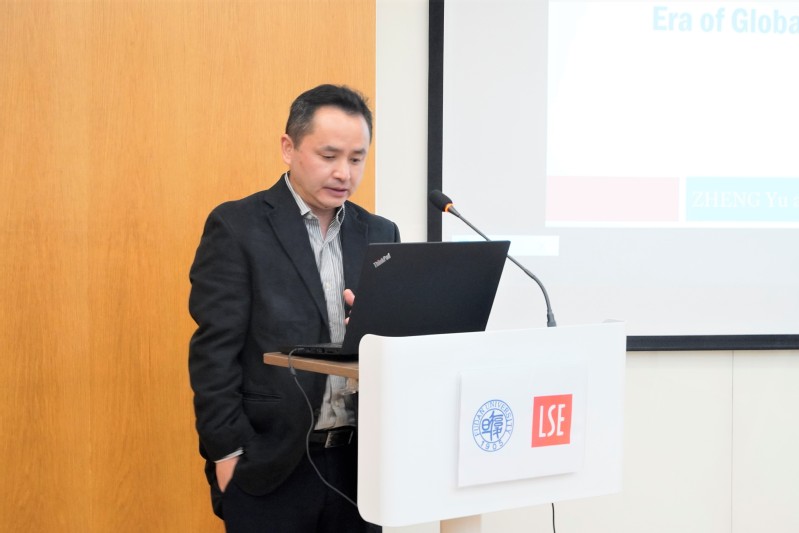
Professor Ke Shen from the School of Social Development and Public Policy at Fudan University explored the economic surplus and fiscal burden in aging China based on her measurements of population age structure, fertility rate, and income. Her study predicts that China will face a shrinking lifecycle surplus from RMB 7.35 trillion in 2014 to RMB 0.46 trillion in 2050, and this decreasing trend may intensify with the increase of consumption as a proportion of income. The decreasing economic surplus will impose greater pressure on public spending on social benefits in response to aging. Therefore, it is urgent to reconsider policies on retirement age, pensions, health care, and fiscal capacity to cope with the predictable fiscal burden.
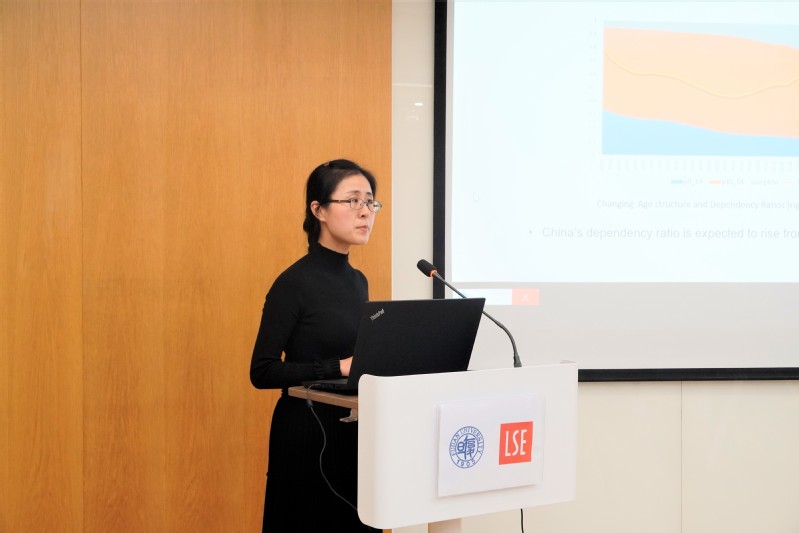
Professor Ranjeeta Thomas from the Department of Health Policy at LSE discussed the challenges, the way forward, and the outlook in healthcare priority setting for low- and middle-income countries (LMICs) in the post-COVID-19 era. She argues that there are multiple challenges in moving to a horizontal priority setting, including funding arrangements, inadequate access to essential medicines, and the fragmentation of the supply chain. Countries should make efforts to coordinate funders and national health insurance schemes, improve procurement and supply chain management and invest in healthcare systems and global health security, to fulfill the key tasks of providing equal health service and controlling major diseases.

Professor Xizhe Peng from the School of Social Development and Public Policy at Fudan University shared his research on possible paths for establishing a fertility support policy system in China with the experiences of the UK and other European countries. He analyzed the severity of China’s aging problem citing data on China’s demographic structure and birth rates and suggested that measures such as childcare services, financial support, and parental leave in European countries can serve as a model for China’s fertility promotion policies. In addition, China should make more policy efforts in childcare services for preschool-age children, parental leave for couples, welfare for the elderly and children, and gender equality.
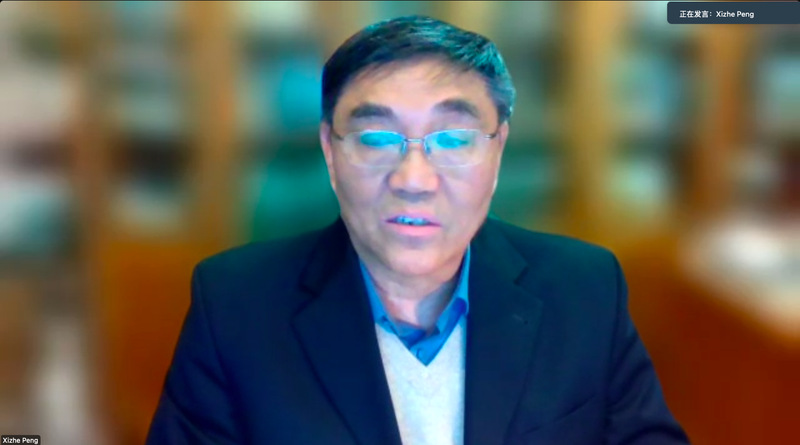
Professor Yijia Jing hosted academic session 2.
Professor Keyu Jin from the Department of Economics at LSE presented her research on international technology competition. She posed the research question about what government policies should look like in the intense competition between two large and different economies, the US and China. The preliminary study showed a beggar-thy-neighbor effect in technological competition, which is a kind of gaining at another country’s expense if a country wants to maximize its national welfare. She also mentioned two major findings about comparative advantage and countries’ rational choice. That is, if a developing country achieves innovative growth based on its comparative advantage, there would be a welfare loss for the developed economy, so the developed country can protect its welfare by imposing restrictive technology policies on the developing country. For optimal trade policy, doing something from the government’s perspective is always better than doing nothing.
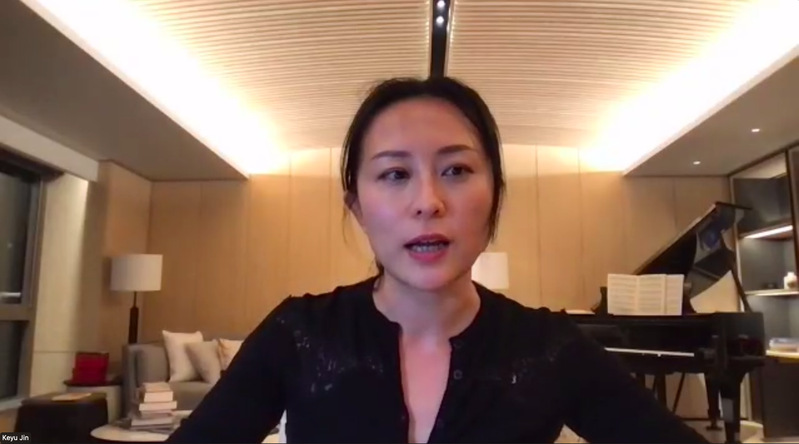
Professor Chun Ding from the School of Economics at Fudan University described current China-EU economic relations as a “warm economy and cold politics” given the trade, investment, transport data, and EU’s countermeasures and technical barriers to China. This status quo may result from the increasing economic competition between China and Europe and political factors such as ideology, international pressure, populism, and public opinion. Professor Ding’s analysis showed that the EU still has advantages in technology and the global value chain over China, and the high trade dependence binds the interests. The Sino-EU economic cold war is evitable as there are no major conflicts on core interests for both sides.
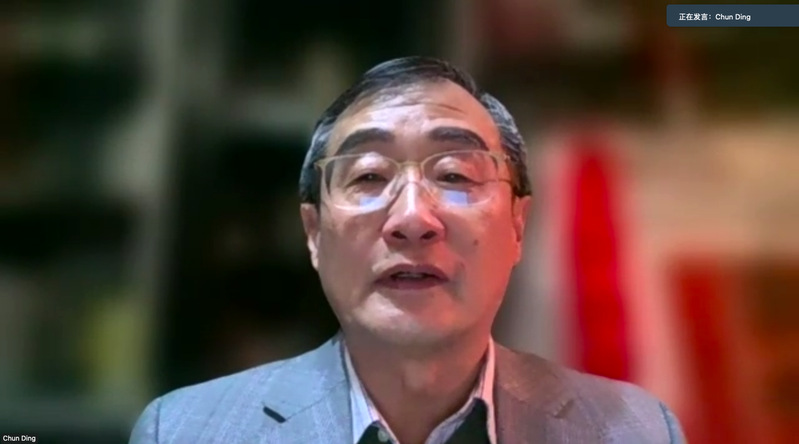
Professor Duoqi Xu from the Law School at Fudan University pointed out that the current multilateral trade rules system had fallen into the dilemma of cross-border data flows. First, the data governance paradigms of major trading powers such as the United States, China, and the EU have diverged significantly and formed a new “digital divide”. Second, without a specific arrangement in the existing WTO trade rules system, the formation of special international rules for cross-border data flows accelerates the development of bilateral or regional trade agreements, which may further exacerbate the fragmentation of the multilateral trade rules system. Professor Xu proposed China’s possible approaches to multilateral trade agreements to cope with this dilemma.

Professor Alvaro Mendez from the Global South Unit and Department of International Relations of LSE shared his research on New Development Assistance. He investigated the role of the Asia Infrastructure Investment Bank (AIIB) and New Development Bank (NDB)’s agencies in Latin America and the Caribbean. The study shows that the two banks are playing a deepening role in the development of the global South with fewer aid constraints and more local trust. They have adopted different strategies to expand their membership based on attraction and invitation. The AIIB and NDB are even considered Chinese institutions by local governments, demonstrating the importance of China in global governance and development assistance.
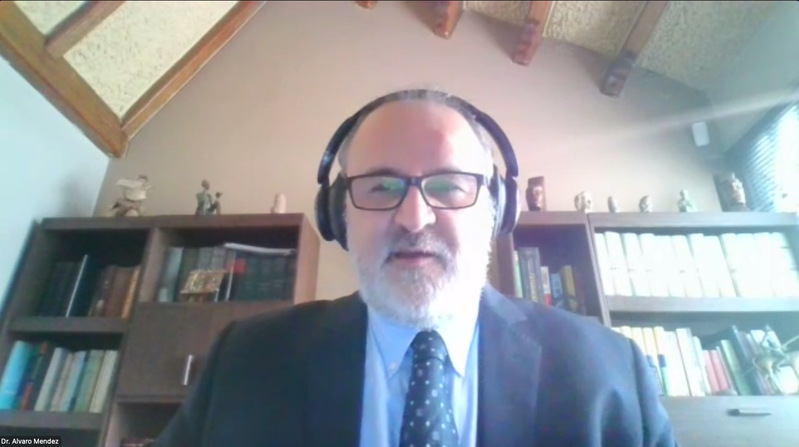
In the Q&A session, scholars and researchers exchanged questions and comments on the methodologies, theoretical contributions, and policy implications of their research.
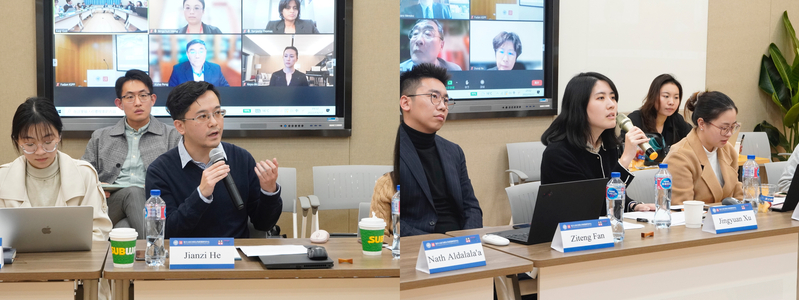
Professor Yijia Jing delivered the closing remarks after the Q&A session. He pointed out that the conference covers the three frontiers in global public policy research: domestic and local issues under globalization, international comparative studies, and global institutions and actions. He hoped that future research could advance theory building, methodology adoption, and data collection. Professor Timothy Hildebrandt thanked the speakers and participants for their active multidisciplinary discussion and their inspiration to solve global public policy challenges. Both universities expressed their gratitude to all participants and hope to attend the 2023 Annual Conference at LSE in person.

The first Fudan-LSE Annual Conference concluded successfully.




